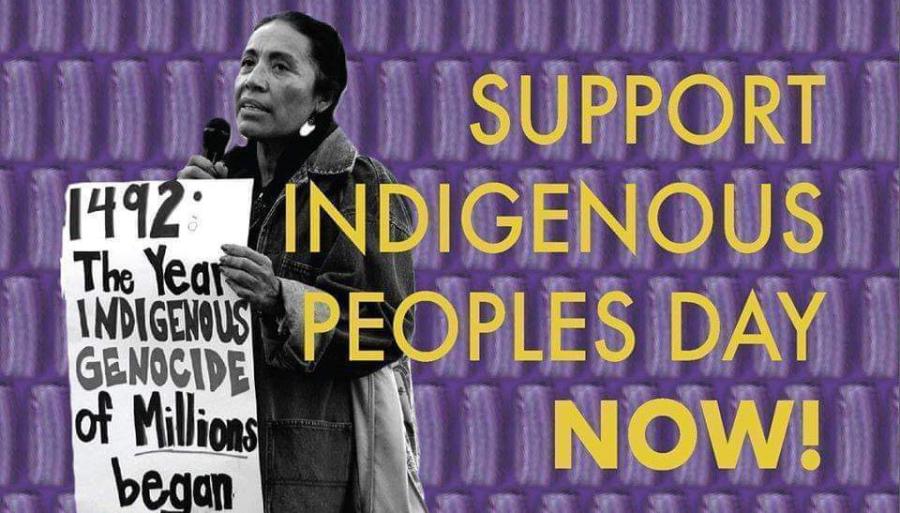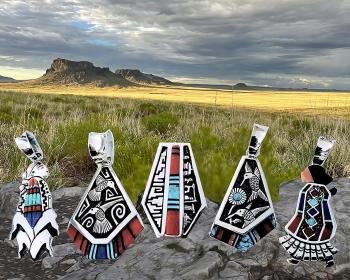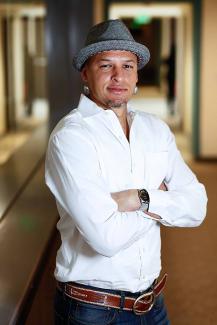
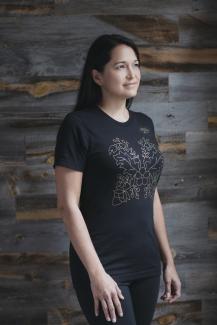
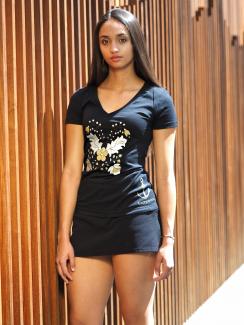
The idea of entrepreneurship isn’t a new concept among Native people. Our ancestors have always practiced entrepreneurship—it was called survial. Farmers, hunters, fishermen, women, artisans, and traders were all entrepreneurs because it was how they provided for their people.
Growing up I always struggled with choosing a profession. Should I be an architect, an attorney, a public relations executive, an exotic dancer? My father has always said, “Figure out what you love doing first; then figure out how to make a living from it.” Those words I’ve heard all my life didn’t click until the year I turned 30. Then it hit me: I can do whatever I want with my life—and it doesn’t have to be just one thing.
One of my passions is art. I am a painter, designer, and writer. I have a lot of Native artist friends who travel around from powwow to powwow and art show to art show trying to sell their art. It’s a very tiresome and taxing job. I saw a problem that needed solving. How could I help my fellow Native artists create a more sustainable living from their craft? How can I vastly increase the marketability of these artists? How can I make sure they are seeing the greatest rate of return from their work?
Then...boom! About four years ago I had a vision of creating a vehicle that allowed Native artists, designers, and crafters to have their own online store where they can sell to the entire planet. After a lot planning, trial and error, and hard work, NDNcraft.com was born. NDNcraft.com is an online marketplace that allows people to create their own e-commerce store for literally pennies. We are all creating positive change, creating opportunities.
NDNcraft allows people to be their own boss. They control the prices, the inventory, and their own marketing. It’s a vehicle that retains culture, fights against cultural misappropriation, and doesn’t take advantage of artists, designers, and crafters. We’re more affordable than Etsy; we offer a specific market for our buyers, and we’re Native owned and operated. It’s a vehicle for the people. We are the people! Designing is a passion of mine. I love designing beautiful things from furniture, clothing, and home goods. It has been a dream of mine since I was a youth to create a line of clothing. My dad subscribed to GQ and I used to read those magazines from cover to cover, dreaming of being the next Calvin Klein, Valentino, J Crew, etc. One my favorite ways to express myself is through my attire.
Being an enrolled member of the Shinnecock Nation, I love the woodland floral patterns of my tribe and all the woodland tribes across the country clear into Wisconsin and Minnesota. They flow beautifully, and are bold and powerful. With all the non-Native clothing companies exploiting our styles and designs, I decided to create a line of clothing and home goods that celebrated our woodland designs in a positive way. I wanted to give people from all walks of life something they could wear proudly and in good conscience. In 2015 I created Eastwoods Apparel & Home Goods. We started with a line of unisex shirts with a beautiful print designed by Ojibwe artist Jessica Show Pony Gokey. Today we’ve expanded to dresses, headwear, and women’s shirts, with still a lot more to come. As the owner and creative director, I have the unique opportunity to collaborate with many Native artists and manufacturers to give the people products that are authentic and beautiful.
Entrepreneurship is important to me. It allows me to create my future. The harder I work, the better results I see. I didn’t have a lot of money when I started these companies. I just studied, read, listened, and did it. Starting something is half the battle. It comes down to being a good steward of your time. I don’t own a TV; to me it’s a waste of time, and time is the only true luxury. I get so much more done by not owning a TV. Georgetown alumnus and NBA all star, Dikembe Mutombo, gave me that advice over lunch several years ago. Here’s a guy whose father made $36 a month as a teacher in the Congo. Mutombo went to Georgetown on an academic scholarship. He actually hated basketball. Not only is he is a scholar and former NBA all star, but he’s a philanthropist, ambassador, husband, and father. His advice to me was to throw my TV away. That was some of the best business advice ever given to me.
This road hasn’t been easy, and is still bumpy. I didn’t take out a loan from a bank or borrow from a venture capitalist because I wanted to retain full ownership of my companies. That meant building them slowly and saving penny by penny. It had to be done. There is motivation for me to be successful because of the current small number of Native business owners and mentors. I know that there are people watching me. My family is watching me to set a positive example. If other ethnic groups can join forces to build their communities, we can too.
I would like to encourage everyone reading this to consider becoming an entrepreneur. You don’t have to have a lot of capital to start, just passion, discipline, and the will to not give up. You will fail. You may fail five to ten times, but you must keep going. You must! Own something for yourself. Create a legacy for future generations. Be a role model. Be a warrior.
As our ancestors look upon us, let us be the answers to their prayers. Let us create avenues for tribal sustainability. We can bring more power to the people, for we are the people. As for myself, I’ll never stop building and creating. I have a world to clothe and a daughter to feed. Tell Tommy Hilfiger and Ralph Lauren that I’m coming for ‘em!
— Christian Branden Weaver (Shinnecock Nation) was born in Brooklyn and resides in Denver, CO. He is a visual artist, designer, creative director, business developer, DJ, philanthropist, and powwow dancer.
Photos:
Christian Weaver.
Eastwoods limited edition Butterfly Crew Neck t-shirt.
Eastwoods Butterfly Royale V-neck t-shirt.
All photos courtesy of Christian Weaver.
